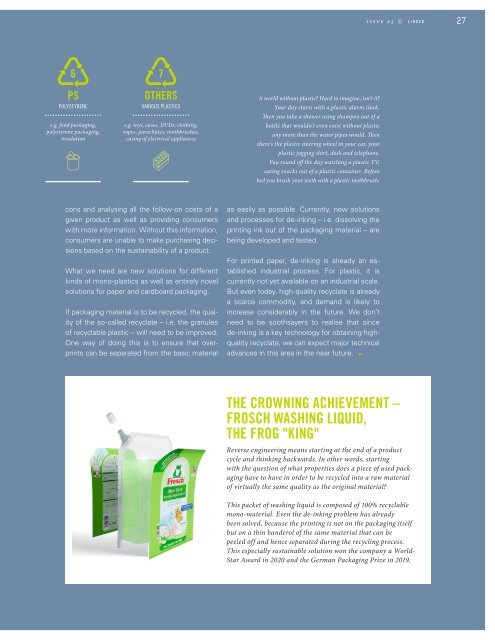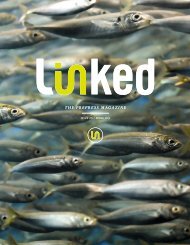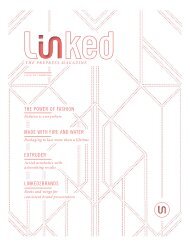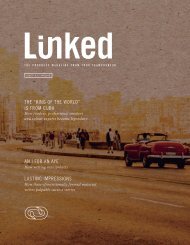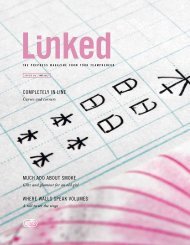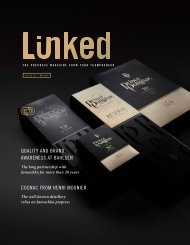Create successful ePaper yourself
Turn your PDF publications into a flip-book with our unique Google optimized e-Paper software.
issue #5 ©<br />
l i n k e d<br />
27<br />
PS<br />
Polystyrene<br />
e.g. food packaging,<br />
polystyrene packaging,<br />
insulation<br />
others<br />
Various Plastics<br />
e.g. toys, cases, DVDs, clothing,<br />
ropes, parachutes, toothbrushes,<br />
casing of electrical appliances<br />
A world without plastic? Hard to imagine, isn’t it?<br />
Your day starts with a plastic alarm clock.<br />
Then you take a shower using shampoo out of a<br />
bottle that wouldn’t even exist without plastic<br />
any more than the water pipes would. Then<br />
there’s the plastic steering wheel in your car, your<br />
plastic jogging shirt, desk and telephone.<br />
You round off the day watching a plastic TV,<br />
eating snacks out of a plastic container. Before<br />
bed you brush your teeth with a plastic toothbrush.<br />
cons and analysing all the follow-on costs of a<br />
given product as well as providing consumers<br />
with more information. Without this information,<br />
consumers are unable to make purchasing decisions<br />
based on the sustainability of a product.<br />
What we need are new solutions for different<br />
kinds of mono-plastics as well as entirely novel<br />
solutions for paper and cardboard packaging.<br />
If packaging material is to be recycled, the quality<br />
of the so-called recyclate – i.e. the granules<br />
of recyclable plastic – will need to be improved.<br />
One way of doing this is to ensure that overprints<br />
can be separated from the basic material<br />
as easily as possible. Currently, new solutions<br />
and processes for de-inking – i.e. dissolving the<br />
printing ink out of the packaging material – are<br />
being developed and tested.<br />
For printed paper, de-inking is already an established<br />
industrial process. For plastic, it is<br />
currently not yet available on an industrial scale.<br />
But even today, high-quality recyclate is already<br />
a scarce commodity, and demand is likely to<br />
increase considerably in the future. We don’t<br />
need to be soothsayers to realise that since<br />
de-inking is a key technology for obtaining highquality<br />
recyclate, we can expect major technical<br />
advances in this area in the near future.<br />
The crowning achievement –<br />
Frosch washing liquid,<br />
the frog "king"<br />
Reverse engineering means starting at the end of a product<br />
cycle and thinking backwards. In other words, starting<br />
with the question of what properties does a piece of used packaging<br />
have to have in order to be recycled into a raw material<br />
of virtually the same quality as the original material?<br />
This packet of washing liquid is composed of 100% recyclable<br />
mono-material. Even the de-inking problem has already<br />
been solved, because the printing is not on the packaging itself<br />
but on a thin banderol of the same material that can be<br />
peeled off and hence separated during the recycling process.<br />
This especially sustainable solution won the company a World-<br />
Star Award in <strong>2020</strong> and the German Packaging Prize in 2019.


